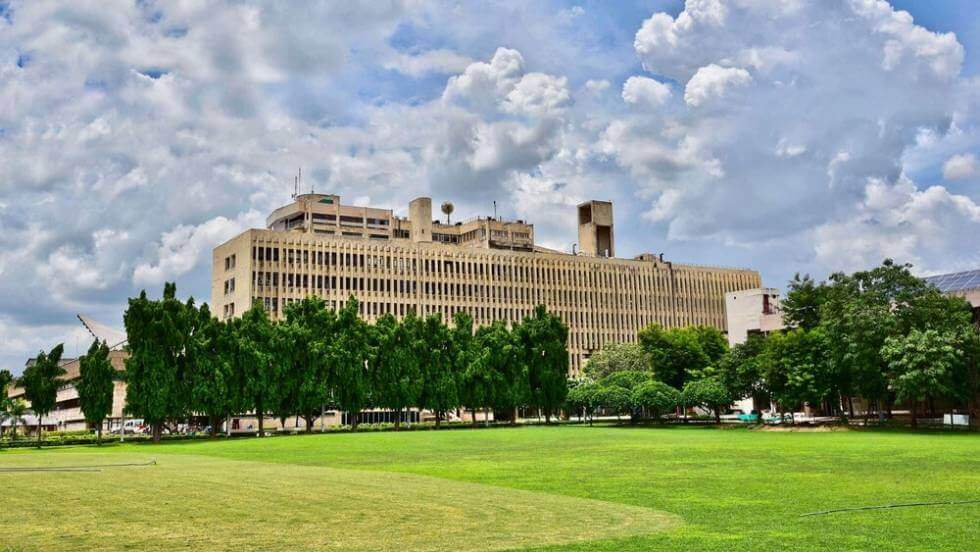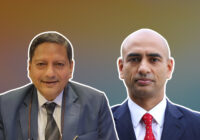Dear Prime Minister Narendra Modi,
I am proud to have had the opportunity to study at an Indian Institute of Technology (IIT). At the age of 16, I was completely transformed by this intellectually challenging and life-building experience. Afterward, I built a successful career in the US for over forty years. I have now returned home and begun making a contribution to improve our country’s Human Development Index by contributing to many worthy causes. These include helping to improve primary healthcare, education and equipping Indians with skills to build careers. With some colleagues, I have set up a platform that helps how these program interventions can have measurable outcomes. Mirroring the United States, I ask if we can adopt affordable technology and most importantly, sustainable funds for our projects. In order for our country to get a seat at the UN Permanent Security Council or a Seat at the G7 (+1), we cannot have 250 million citizens living on less than $ 2/day. We cannot have 35% of our children under 5 years stunted. We cannot have a Global Hunger Index ranking of 111/125. And we cannot have 58.9% of adolescent women suffering from anemia.
I heard your speech at the India Today Annual Conclave in Delhi. It reminded me of when I heard your speech at the 54th Convocation of IIT Kanpur on December 28, 2022. Hearing your intervention back then made me nostalgic for my experience at IIT. But I was surprised at some of your statements. You said that no general development took place in India during the first 25 years after independence. You claimed that our country made no effort to rebuild itself after 200 years of being pillaged by Britain. I am sure the young graduating students must have believed what you said about our country. I am concerned about how your words may affect their perspectives. I give you the benefit of the doubt since this seems to be an error on the part of your speechwriters. If you could hand over this letter to them, as a guideline for your next speech, I would be grateful. After all, one cannot erase history.
I was even more shocked when I heard your speech at the Conclave. You said that whilst your government has done more for India’s development in its eight years of governance than in the entire 75 years since independence, you enumerated the first 75 days of 2023. The highlights were winning an Oscar and the Women’s Under-19 World Cup in cricket. In fact, you made me wonder if we perhaps had gained independence in 2014 and you were the lone freedom fighter. Very few leaders in the last 100 years have single-handedly taken the credit for the success of their country on a global platform except for a few who should not be named. This to me seems like a questionable and audacious move.
Here are some stellar examples of the solid foundation laid down by our visionary leaders:
1. The construction of the famous dam Bhakra Nangal began in 1948 and finished in 1964. The dam’s irrigation provided the backbone of the Green Revolution which allowed our country to have surplus food grains. The Food Corporation of India was established on January 10, 1964.
2. Five IITs (one in every region of the country: Kharagpur, Bombay, Madras, Kanpur, and Delhi) were started from 1950 till 1964. There are now 23 IITs that produce engineers who work at the world’s leading corporations and academic research institutions.
3. Three Indian Institutes of Management were started in the first 25 years, providing post-graduate studies in business administration. They operated on par with Harvard Business School and University of California, Berkeley. There are now 20 IIMs that provide senior leaders to the world’s largest corporations.
4. Many prestigious national laboratories for fundamental scientific research were started during the infancy of the republic, like the National Chemical Laboratory, the Indian Institute of Science, the Central Salt and Marine Chemical Research Institute Jamnagar and the Physical Research Laboratory.
5. Atomic research started with the establishment of the Bhabha Atomic Research Center under the Atomic Energy Commission. Thus, we became self-reliant in atomic energy.
6. Crucial research laboratories like the Defence Research and Development Organisation, Armament Research and Development Establishment, Akron Rubber Development Laboratory and the like were started with a vision to make our country self-reliant in defense.
7. Many companies and organizations of strategic importance were started. Hindustan Aeronautics Limited, Bharat Electronics, Central Electronics Limited, Bharat Heavy Electricals Limited, Hindustan Antibiotics Limited, Oil and Natural Gas Corporation, Indian Telephone Industries Limited and many more were established in the first 25 years of independence.
8. The Indian Space Research Program was launched and the Indian Space Research Organisation was established during this period. This has paid rich dividends to our country! We are now not only Aatmanibhar (self-reliant) in all our space missions, but we also provide this service to other nations.
9. The Indian Council for Medical Research was established in 1948. Many research and medical institutes set up under the Council in various areas of health sprouted across the country during the first 25 years. India Institute of Medical Sciences, New Delhi was set up in 1956.
Sir, the list goes on and on. Our democracy invested its energy, blood, sweat and toil in the first 25 years to lay the foundation of this country. All this was done in spite of being raped by our colonial rulers. Poverty (75%), illiteracy (72%), lack of primary health care, a short life expectancy (27 years), epidemics and natural disasters leading to famine tested the strength of the Indian people and continue to the present. Hats off to the vision of our freedom fighters and leaders of our young country who made great strides despite the odds. As Prime Minister Jawaharlal Nehru said, as the clock struck 12:00 midnight on August 15, 1947: “Long years ago we made a tryst with destiny, and now the time comes when we shall redeem our pledge, not wholly or in full measure, but very substantially.”
I don’t know what to make of it. All I know is, without exception, everyone seems to be afraid, afraid of the outcome of the upcoming elections. Emotions are everywhere. What will happen to our lives if you retain power? When you do not respect the truth of India’s history, you really make a mockery of our intelligence.
As Indian citizens, let us recall the opening sentence of our constitution: “We the people.” India is the world’s largest functioning democracy. Our leaders should know this, and we will remind them of it collectively, lest they forget.
Prime Minister, I must speak my mind. To call it what it is. Even if I am labeled unpatriotic or an anti-national, I say this with confidence: I am really, truly proud to be Indian!
[Gwyneth Campbell edited the piece.]
The views expressed in this article are the author’s own and do not necessarily reflect Fair Observer’s editorial policy.
Support Fair Observer
We rely on your support for our independence, diversity and quality.
For more than 10 years, Fair Observer has been free, fair and independent. No billionaire owns us, no advertisers control us. We are a reader-supported nonprofit. Unlike many other publications, we keep our content free for readers regardless of where they live or whether they can afford to pay. We have no paywalls and no ads.
In the post-truth era of fake news, echo chambers and filter bubbles, we publish a plurality of perspectives from around the world. Anyone can publish with us, but everyone goes through a rigorous editorial process. So, you get fact-checked, well-reasoned content instead of noise.
We publish 2,500+ voices from 90+ countries. We also conduct education and training programs
on subjects ranging from digital media and journalism to writing and critical thinking. This
doesn’t come cheap. Servers, editors, trainers and web developers cost
money.
Please consider supporting us on a regular basis as a recurring donor or a
sustaining member.
Will you support FO’s journalism?
We rely on your support for our independence, diversity and quality.







Comment